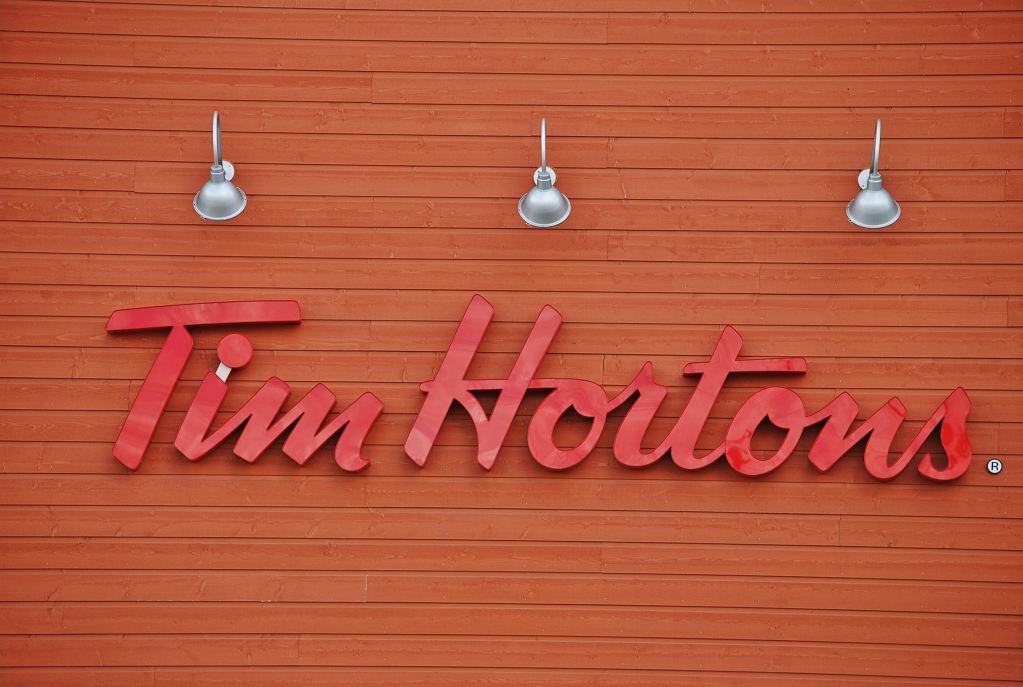As we celebrate 152 years of Canada this July, let’s take a moment to reflect on the Canadian brands that have become a part of the national identity. We’ve compiled a list of four homegrown businesses that have inspired and engaged us for years and briefly look at how they’ve stayed relevant through innovation, prioritizing customer satisfaction, and staying true to their core values.
Dollarama
The origins of Dollarama date back to 1910, when Lebanese immigrant Salim Rossy opened a five-and-dime store in Montreal called S. Rossy Inc. Over the years the family-run business transformed into a variety store, and eventually in 1992, grandson Larry Rossy opened the first Dollarama in Matane, Quebec offering all items for $1.00 or less.

Dollarama now has over 1200 stores across Canada, and is the fastest growing value retailer, beating even big-box retail giants. Their business model is simple – operate clean, well-lit stores, keep prices rock bottom, and never let the inventory run out. Another ingredient of their success is their hands-on management style. While senior executives handle the day to day administration, the top bosses are still focused on sourcing the best merchandise for customers, pricing them right, and picking great locations for their stores. No matter how challenging the business environment gets, Dollarama sticks to its guns, optimizes its own processes and ensures it remains a value retailer.
M.A.C Cosmetics
A world leader in professional makeup, M·A·C Cosmetics or Make-up Art Cosmetics is a homegrown Canadian brand. Salon owner Frank Angelo and makeup artist and photographer Frank Toskan cooked up their first lipstick, inspired from a crayon in their kitchen. The fashion circuit was blown over by their high-performance products and functional black packaging. In 1984, M.A.C launched to the public from a department store in Toronto. A billion dollar brand now, M.A.C is sold in over 120 countries around the world.

The brand’s enduring appeal is thanks to its emphasis on celebrating diversity and individuality. Organically the brand evolved into a socially conscious beauty brand and it continues to uphold its core values. Their motto says – for all ages, all races, all genders, and M.A.C is a brand that walks this talk. They were the first to create products that brought inclusivity in colour cosmetics. Its common to see employees of every gender and unconventional personalities working their store counters. In fact their first spokesperson was RuPaul, the drag queen. M.A.C was also the first to train and educate their staff and invest in improving the in-store experience of customers. M.A.C has shown that being true to the customer and serving their needs brings success.
Canadian National Railway (CN)
The Canadian National Railway Company or CN is one of North America’s best performing railroads. It’s the only railway network that spans the Atlantic, the Pacific, and the Gulf of Mexico, moving $250 billion worth of goods each year. CN was set up as a crown corporation in 1919 to serve as the infrastructure backbone of the economy. But it did more than just be a railroad company. Its spirit of innovation created national brands like the Canadian Broadcasting Corporation (CBC) and Air Canada. The CN Tower was also built by the company. Many of the railroad technologies used in the industry were developed by CN.

This year, CN is celebrating its 100th anniversary, and the company is relying on innovation to define its next 100. Guided by its mission statement of ‘Building for a Sustainable Future’, CN is toying with artificial intelligence and automation to support its next phase of growth. But CN knows that technology alone is not enough. CN invests in raising awareness about their operations in the communities its rail network touches. It actively participates in community programs that align with local needs to create real benefits for the people in the region.
Tim Hortons
Canada’s largest quick service restaurant chain for coffee and doughnuts, Tim Hortons is an inescapable part of everyday life in the country. Founded in 1964 by national league hockey player Tim Horton, the restaurant chain is likened to a cultural icon and a national institution. For many, Tim Hortons or Timmies as its popularly called, is the embodiment of Canadian values of humility and reliability. It’s your morning ritual on your way to work or while dropping your kids to practice.

In recent years, Tim Hortons’ status as the quintessential Canadian experience has been questioned owing to a change in ownership that was at odds with franchisees. But the brand was quick to recover and acknowledge its significance as a local community hub and the attachment that people have to the coffee chain. The management undertook a cross-Canada tour, meeting franchise owners and listening to the concerns of its customers. They also launched a nation-wide loyalty program as their way of saying thank you to its customer base and rewarding them.
This article offers general information only, is current as of the date of publication, and is not intended as legal, financial or other professional advice. A professional advisor should be consulted regarding your specific situation. While the information presented is believed to be factual and current, its accuracy is not guaranteed and it should not be regarded as a complete analysis of the subjects discussed. All expressions of opinion reflect the judgment of the author(s) as of the date of publication and are subject to change. No endorsement of any third parties or their advice, opinions, information, products or services is expressly given or implied by RBC Ventures Inc. or its affiliates.


